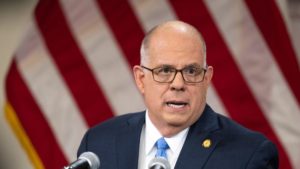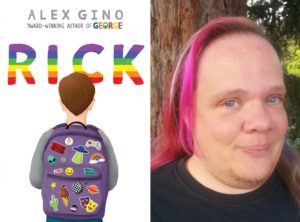Free online ‘affirmative therapy’ for ‘sexual and gender minority groups’ offered to Baltimore high schoolers
A Maryland school district with over 32,000 students is giving those over 13 digital access to “therapy,” including so-called gender affirming care, and apparently without parental…

A Maryland school district with over 32,000 students is giving those over 13 digital access to “therapy,” including so-called gender affirming care, and apparently without parental consent.
Baltimore County Public Schools announced a new partnership with Talkspace, a behavioral health care company, to provide the services for all high school students in the district.
Students must sign up and take a brief assessment before getting matched with a therapist, according to the press release. Although a parental consent form is mentioned on the website, it appears to be optional.
According to an FAQ section, Talkspace may also withhold information from parents: “Parents/guardians can reach out to the provider at any time if there is an urgent concern; however, the provider may not be able to share information about your teen without your teen’s consent.”
Once matched, therapy sessions take place on Talkspace’s platform, accessible from the student’s smartphone, tablet or computer. Teens can communicate with their therapists at any time at no cost.
The program includes “affirmative therapy,” a specialized service catering to the needs of “sexual and gender minority groups.”
“Affirmative therapy is a type of therapy that focuses on the needs of individuals from sexual and gender minority groups,” Talkspace states. “This kind of therapy intends to meet the clients where they are. The idea is to create a safe space for the client to share their thoughts and feelings around sexuality and gender free from judgment and bias.”
“Working with a therapist who’s skilled and trained in LGBTQIA+ affirmative therapy can change your life,” Talkspace therapist Reshawna Chapple said. “You’ll get gentle, understanding care and guidance from someone who knows what you’re experiencing. They can help you learn to accept your identity, or show you how to work towards more positive, healthy relationships with friends and family members.”
Programs such as this one have been rolled out in districts across the country, but have been met with criticism from parents’ rights advocates and legal groups.
“Students discussing sexuality with adults, often seeking to eliminate parents entirely from the conversation, raises significant concerns about student safety,” wrote the Wisconsin Institute for Law and Liberty in a letter meant for concerned parents to send to lawmakers about a similar pro-LGBT resource in Wisconsin.
Parents Defending Education has found that 7 in 10 registered voters support legislation that would require parental notification in cases of gender dysphoria in children.
“It’s not a partisan issue,” PDE founder Nicole Neily told Real America’s Voice. “Children do better when families are involved in their lives. You can supplement their education. You can ask questions. You know your child, but we’re being held at arm’s length.”



